How the Spainsh ‘flu got George Orwell through the Indian Imperial Police Examination
While researching the lives and deaths of Old Alleynians who fought and died in the First World War for this website launched in 2018 we were continually on the look out for mentions of the Spanish ‘flu that spread like wildfire though the undernourished, exhausted and invalided population of Great Britain 1918-20. We felt certain it would have left its mark on the College, as some 228,000 died from it in Britain alone. But there was no mention of the pandemic in The Alleynian or the Minutes of the Governors Meetings, even the obituaries of Old Alleynians never named it as the cause of death. We put this down to an exhaustion with death following the four and a quarter years of war which had claimed the lives of over 530 old boys, some not old at all, but still in their teens.
However, in researching the teachers who influenced some of the writers who emerged from the College in first quarter of the C20th for Patrick Humphries’ book Cradle of Writers: Mason, Wodehouse, Chandler, Wheatley and Forester published in 2019, part of the Dulwich College Quatercentenary Series, an interesting connection came to light between the Spanish ‘flu and another twentieth century author George Orwell.
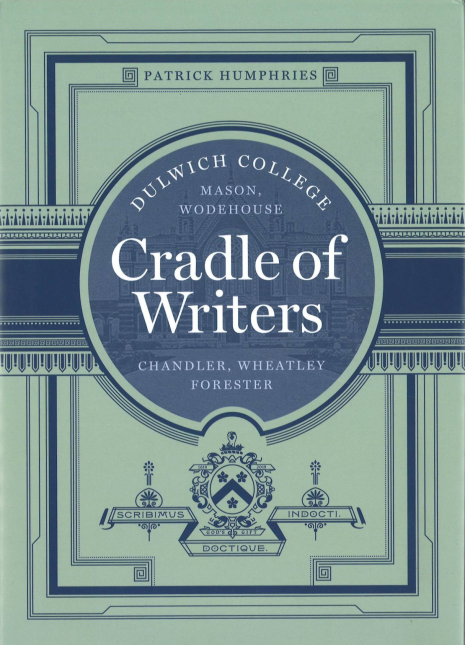
Front cover of Cradle of Writers by Patrick Humphries
Philip Hope was born on 26 August 1869 in Staffordshire to John Hope and his second wife Elizabeth. The family moved from Stoke-on-Trent to London where Philip was educated at the University College School. He went to University College, London University from 1886-8 when he won a scholarship to King’s College Cambridge. He took a first class in the Classical Tripos in 1892 and joined the staff at Dulwich College in the Classics Department in the same year. He went on to obtain his MA from Cambridge in 1896.
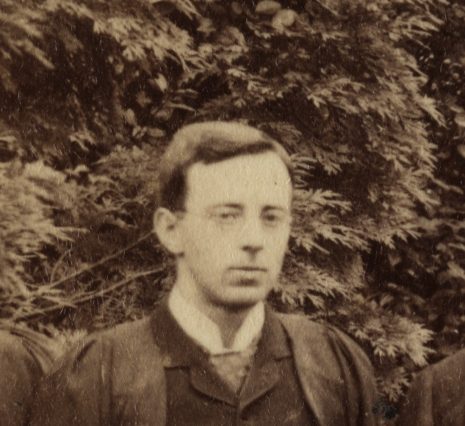
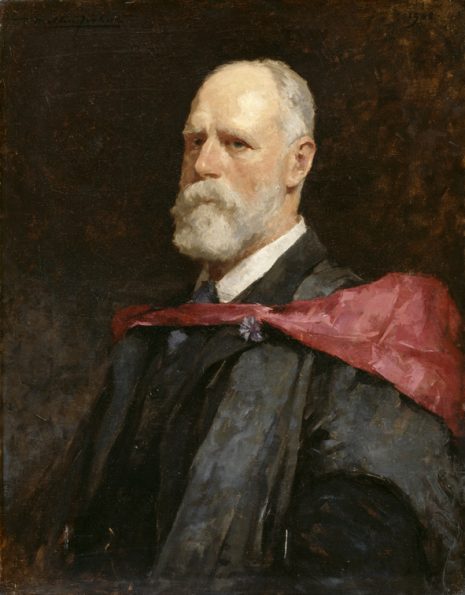
Philip Hope (above left) and the Master, A H Gilkes, (above right) both taught PG Wodehouse (at Dulwich 1894-1900) (below left). Hope, together with Henry Fieldwick Hose, were on the staff at Dulwich College when Raymond Chandler (1900-05) (below right), Denis Wheatley (1909) and CS Forrester (1915-16) were at school. However none of them overlapped with AEW Mason (1878-84). It was Hose who found temporary work for Chandler at the College, a kindness which he never forgot, sending food parcels to his old master during the Second World War. But as Librarian it was Hope who might have been encouraging Chandler’s reading habits and influencing his tastes.
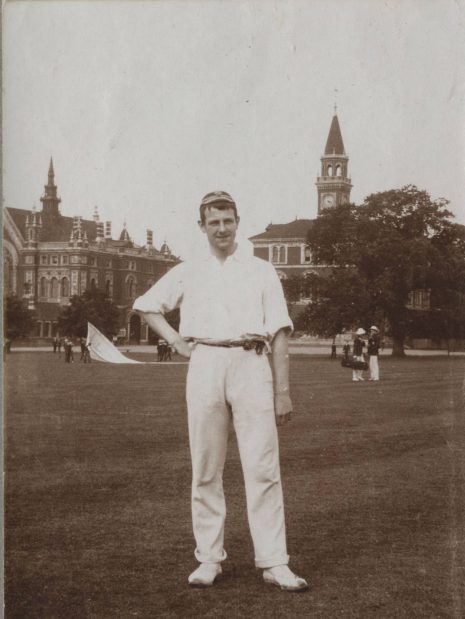
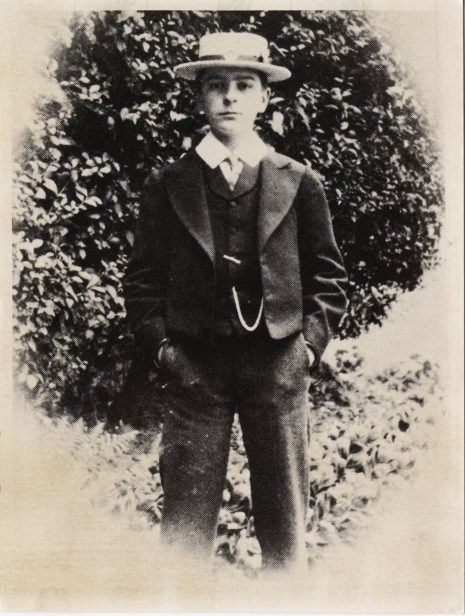
But this story starts in January 1895 when Francis Herbert Fortescue joined the College. He was born on 15 October 1879, the only son of Francis John Heath Fortescue a Civil Servant and his wife Elizabeth. The family had moved from Edinburgh to Acton in West London, but it was still too far from the College, so the young Francis was a boarder in Blew House. Francis was academically gifted and was on the Classical Side at Dulwich, pursuing a very traditional secondary education in preparation for university. In 1893 he won an Exhibition to Brasenose College Oxford to which he added a scholarship in 1898 and the Wordsworth Prize in 1901. No doubt these persuaded him to continue his academic career as he became the senior Hulmeian Scholar and took a First Class in ‘Greats’ in 1902. He followed his father into the Civil Service, he came 62nd in the entrance exam and was appointed the Estate Duty Officer at Somerset House. In 1909 he married Dorothy Elsie Forbes Bassett, at St George’s Hanover Square. She was the eldest daughter of George Bassett, a solicitor in Southampton.
In 1910 Francis resigned his post in the Civil Service to become an assistant master at Worcester Cathedral School. After a couple of years he and Dorothy moved to Southwold where he became a private tutor. In 1916, possibly because of the toll the war was taking on the staff, he returned to his alma mater where he became an assistant master in the Classics Department and he and Dorothy moved into 11, Allison Grove.
The so called Spanish ‘flu started in the spring of 1918, and was so named because neutral Spain was not subjected to the same news blackout of the other European countries so it was from the Iberian Peninsula that reports of the large death toll started to emerge. There was a more deadly outbreak of the influenza strain in the autumn. One characteristic was that it appeared to infect healthy young people. One such victim was Francis Fortescue who died just before the Armistice on 2 November 1918, he was 39. It is interesting to note that the two people, whose deaths are registered above his, were 24 and 14 years old and the one after was only 28. Francis’ father died in May 1933 at the ripe old age of 83.
Dorothy Fortescue wasted no time before marrying Philip Hope, on 21 January 1919. She had not even waited for probate to be declared on Francis’ estate, which happened on the 8 February 1919, leaving her nearly £1,000. It is possible that the unseemly haste with which Philip and Dorothy married was too much for the sensibilities of the College. Maybe the inheritance from Francis was the spur; but in July 1919 they left Dulwich and returned to Southwold. Dorothy may have encouraged Philip to start the private tutoring business in their home Craighurst, picking up connections forged by Francis during the four years he had coached in the town.
In December 1921 Eric Blair, the future George Orwell, left Eton College and joined his family, who were then living in the Suffolk coast town of Southwold. Eric’s father had retired from the Indian Civil Service and Southwold had attracted them as a few other Anglo-Indian families had settled there. The other attraction may well have been Philip Hope’s crammer. It had been decided that Eric should join the Indian Imperial Police. To pass the examination he would need to brushed up his Latin, English, History, Mathematics, free hand drawing and learn to ride. During the war at Dulwich College, Philip Hope was a 2nd Lieutenant in the Officer Training Corps. which would have equipped him with additional skills he could pass on to a would-be Indian policeman. The exams lasted a week and Eric received his highest mark in Latin: 1782 out of a possible 2000. He did less well in the riding exam coming 21 out of 23 candidates, but overall he passed the entrance exam, coming seventh out of the 26 candidates who exceeded the rather low pass mark of 6000 out of 12400. His chose Burma for his posting and later drew on his experiences when writing his novel Burmese Days 1934.
Philip and Dorothy Hope retired to Surrey where Philip died in October 1943. Dorothy returned to Suffolk and died there in June 1949.